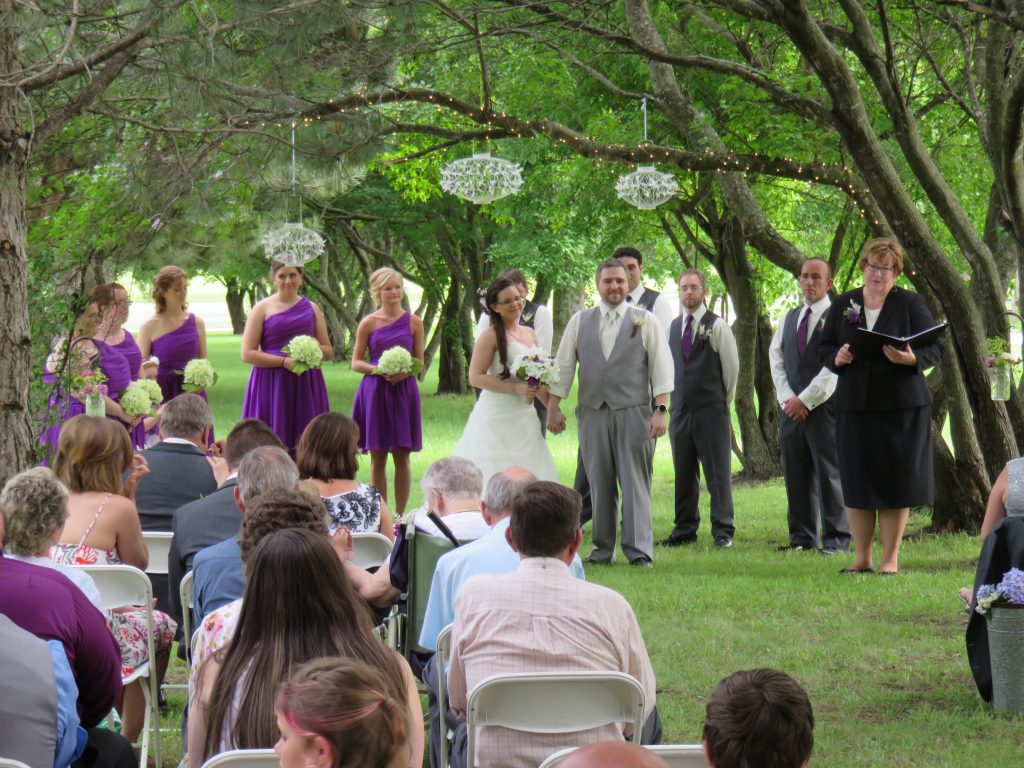Your Secular Wedding Ceremony
Your secular wedding ceremony can be what you truly want it to be. When you’re not constrained by religious requirements, you have the freedom to include only elements that are meaningful to you. The focus of the ceremony can be you as a couple, the love you’ve found together, and the commitment you are making to each other in marriage.
Writing your own vows is a great first step to making your ceremony your own. If you’re not comfortable with that idea, you can choose from literally hundreds of “repeat after me” style vows. Your vows are the public statement of your commitment to each other, so it’s important that they express the promises you want to make. Choosing a reading that reflects your priorities and feelings about love or marriage is another great way to personalize your ceremony. With a secular ceremony your reading can be sourced from any poetry, prose or quotes that speak to you.
Another benefit of choosing your secular wedding ceremony is that you don’t have to include a sermon or homily by your officiant. You can use that time to have your celebrant share highlights of your love story, include an additional reading, or simply have a shorter ceremony. Unity ritual options are nearly limitless in a secular ceremony, and if you want to have a ritual written just for you, many celebrants are willing to do that.

While your secular wedding ceremony can have a look and feel of a traditional ceremony, it doesn’t have to. Options for processionals, wedding parties, the ceremony spaces are limited only by your imagination. Perhaps you want your wedding party to stand in a semi-circle around you rather than in straight lines. If you choose to have only one attendant for each of you, they can stand together on one side with the celebrant on the other side of you, balancing the space and keeping you the center of attention.
Civil requirements for marriage are very minimal. Once you get your legal paperwork for your state, your creativity and the skills of your celebrant are the only limitations you’ll encounter. A personal secular ceremony can be the perfect way to begin your wedding celebration if you are non-religious or of different religions and choose to avoid conflicting requirements. Let your personalities and your love for each other shine and you’re sure to have a wonderful, memorable ceremony for you and for your guests.
